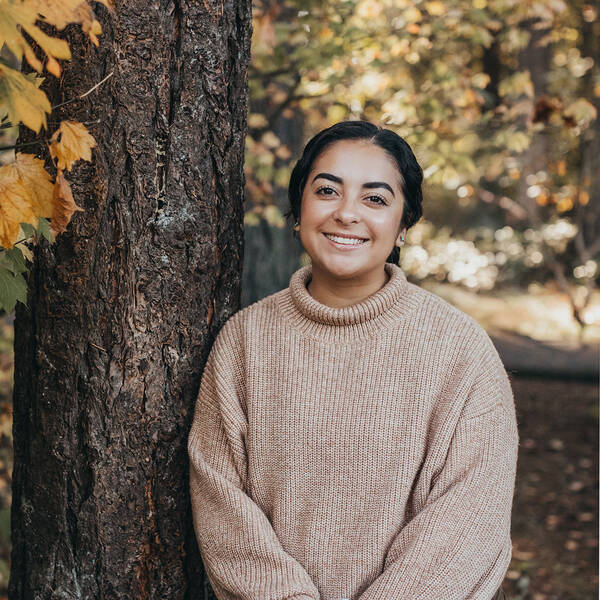
Valentina is a science communicator, proud Latina in STEM, and an Assistant Habitat Biologist at the Washington Department of Fish & Wildlife. She is passionate about protecting wildlife, their habitats, and has always been drawn to their world.
In her role at WDFW, Valentina supports Area Habitat Biologists in land use planning in the form of writing comments for various local projects that adhere to the Statewide Environmental Policy Act, as well as supporting the issuance of Hydraulic Project Approvals (HPAs) in order to protect fish life. She also gets to support Forest Practice Applications and go out in the field often alongside various other partner state agencies and local land trusts, nonprofits, and conservation groups.
Valentina was born and raised in Santiago, Chile, and moved to the Pacific Northwest with her parents at ten years old. Her parents, both elementary school teachers, raised her and her sister to be stewards of the land—with beavers as one of the best examples. She believes that the amount of restoration and positive impact that beavers have on a single ecosystem is absolutely astounding. To this day, most of Valentina’s advocacy comes in the form of promoting beaver coexistence and communicating beaver benefits to youth through various outreach opportunities, as well as by providing technical assistance to local landowners through her work at WDFW.
Valentina holds a Bachelor of Arts & Science degree from The Evergreen State College, is currently a Science Communication Fellow at the Oregon Museum of Science & Industry and regularly volunteers her time with nonprofits rooted in conservation, such as Project Beaver. Valentina currently lives along the Columbia River Gorge in Washington State, where she is lucky to live less than a day’s drive from many national parks–though, until very recently, she had not visited due to access barriers (such as cost, transportation, etc), which still exist for many immigrants, low-income folks, and people of color. Valentina firmly believes it is imperative that these barriers are addressed (and removed) to ensure equitable access to parks for all. She hopes to advocate for access through her work in the NPCA Next Generation Advisory council.